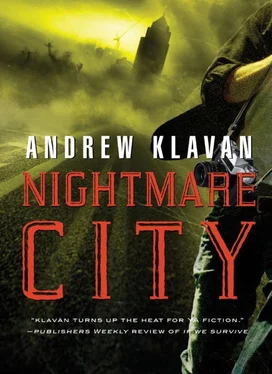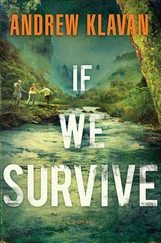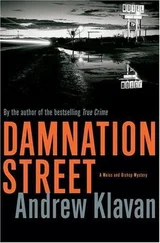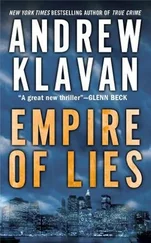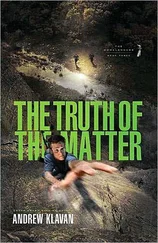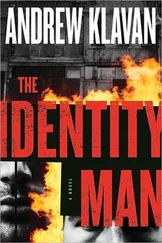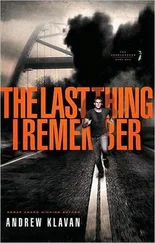“What’d you have to do that for?” he said.
Tom’s eyes flashed from Matt to Dub—and then to Hank Thatcher. Hank looked away, frowning. What a weird situation this was! Hank was one of the sources for Tom’s story. Hank had been a benchwarmer on the championship team three years before. He had seen the players taking drugs himself. He had pictures of them and e-mails from them proving it. He had met Tom in a parking garage one dark night. Handed the evidence over in a rolled-up manila envelope. But he had given Tom that information on the condition of anonymity. Tom had promised never to reveal his name. And now Hank, to protect his secret from his teammates, was joining with the others in taking vengeance on him—and Tom was bound by his promise to keep his mouth shut about it. If this was irony, then irony stank.
“You should’ve kept your stupid opinions to yourself,” said Matt, poking him in the chest again.
“Nobody asked you what you thought,” said Dub.
“It’s not what I thought,” Tom said. He figured, well, if he was going to get a beat-down, he wasn’t going to whine about it. He was going to say his piece at least, while he still had his teeth. “It has nothing to do with my opinions. You think I don’t like the team? I love the team. My brother played on the team. I didn’t want to write this story. I had to. Because it was true.”
Dub somehow wasn’t interested in hearing about the responsibilities of the press. “They say they may take our championship away,” he complained, sticking out his jaw angrily.
Yeah, because you didn’t earn it fairly! Tom thought. But he didn’t say that out loud. No sense pushing things too far. What he did say was, “Well, look, man, I’m really sorry, but like I said, I’m a news guy, I have to…”
“Sorry?” And this time Matt poked him so hard it made him step back into his locker with a clang. “What good does sorry do us now? You’re supposed to be loyal to the school, man! You’re supposed to stand with the team.”
Tom could see this was about to get ugly. He could see that Matt was working himself up to do violence and that Dub was already on the brink—Dub was pretty much always on the brink. And Hank was not going to do a thing to stop either of them because that would give him away.
But just as Tom was wondering how he was going to explain his broken bones to his mother, the locker room door opened again and in came Gordon Thomas.
One of the secret truths of the world, Tom had sometimes noticed, was that life is unfair and that some people get all the luck. This truth was so harsh that many adults couldn’t face up to it. But a kid only had to step out onto a playground once to understand: some people are born smarter, some faster, some stronger, some simply cooler than the rest. Parents and teachers worked hard to convince kids that everyone was special, but kids could see for themselves it wasn’t so—otherwise, the word special wouldn’t mean anything. Every soul was important, sure—a unique work of creation—but when it came to the gifts of nature, most people were kind of ordinary. Only special people were special.
Gordon Thomas was one of those special people. He was handsome with chiseled features and reddish-blond hair that fell rakishly into his startlingly pale blue eyes. Fast and strong? Check. No one had ever beaten him in a race. No one ever tried to beat him in a fight. He was even smart—maybe not as smart as some of the geeks in school, but he always paid attention in class, always did his homework, and always got good grades. And as for being cool, it just came naturally to him. For all his gifts, he wasn’t arrogant or stuck-up. For all his physical strength, he never bullied anyone. For all his success, he always acted modestly and treated people decently. So you couldn’t even hate the guy!
And Tom didn’t hate him. He envied him sometimes. But he liked him. Everyone liked him.
Gordon came into the locker room fast now, and he looked angry. Quickly, he shoved his way past Matt and muscled in between him and Tom, shielding Tom from the others with his body.
“What d’you guys think you’re doing?” Gordon asked them. He looked at each in turn: Matt, Hank, Dub. All three of them averted their eyes, shamefaced in front of the quarterback. “What, are the Tigers beating guys up now? Are we thugs all of a sudden?”
“We’re just talking to him,” Matt muttered.
“Oh yeah,” said Gordon. “I can see.”
The three linemen looked at their shoes, ashamed.
“Coach says they may take our trophy away,” said Dub. “It’s not fair.”
“It’s not fair?” said Gordon, staring hard at the cinder block. “How is it not fair? It wasn’t fair when our guys took drugs to win. That wasn’t fair to the Sandy Hill Panthers, who should’ve gotten the trophy in the first place. All Tom did was tell the truth about it. How is that not fair?”
Dub blinked stupidly. Dub did that a lot. “He wasn’t loyal to the team,” he grumbled.
“Well, maybe he was loyal to something bigger than the team,” said Gordon—though even he sounded miserable about it. “It’s his job to tell the truth even when he doesn’t like it. Maybe especially when he doesn’t like it. He was loyal to that.”
“We just wanted to make him understand what he did to us,” said Matt.
“I know what you just wanted to do,” Gordon said. “But the facts don’t go away just because you beat up the guy who tells them. That just makes you as bad as the guys who took the dope. You want the trophy back?”
“Yeah!” said Dub.
“Well, then let’s win it back,” Gordon said quietly. “If we do it right, we don’t have to be afraid of what anyone says.”
Dub blinked stupidly some more, but even he seemed to grasp this concept. Sort of.
“Now get out of here,” said the quarterback. “Leave Tom alone. He didn’t do anything wrong. And anyone who messes with him, messes with me.”
That was Gordon—typical Gordon. And that was why, when all the players had gone, when Gordon was gone and Tom was alone in the locker room again, he sank down slowly onto one of the benches.
Because he felt bad—really bad. It was true he hadn’t written the story about the team because he hated the team or because he was envious of Gordon, and he hadn’t done it to impress Marie. He had written the story because it was the truth and telling the truth was something he did, something he felt the need to do. But whatever his motives had been, the results had been the same: he’d gotten the team in trouble and hurt Gordon and won Marie’s admiration. It made Tom feel guilty, as if those had been his motives after all.
He especially felt guilty when he was hanging out with Marie. And he was hanging out with her more and more now. The very next weekend, the next Sunday afternoon, he was at her house after church. He joined her and her father and mother and brother for lunch.
The Cameron mansion was even more impressive inside than outside. When Tom stepped through the front door, he came into a vast foyer with marble floors and a sweeping staircase rising to a second-floor balcony. In the study, where he sat with Marie before lunch was served, there were photographs everywhere. Dr. Cameron shaking hands with the mayor. Dr. Cameron with his arm around the governor’s shoulder. Dr. Cameron laughing with the owner of the Dodgers. Dr. Cameron with just about every famous person who lived anywhere near town.
When it was time to eat, they all sat in a vast dining room with a wall of glass doors that looked out across the hillside at the sparkling Pacific Ocean. Dr. Cameron sat at one end of the long glass table and Mrs. Cameron at the other. Marie’s brother, Carl, was on one side, and Marie and Tom sat next to each other across from him. The room was bright with sunlight. The light hit the prisms in the chandelier and was turned into rainbows and the rainbows fell on the crystal goblets and the china plates and the hand-carved oak sideboard against the wall. Tom felt as if he had stepped into a world so plush and beautiful as to have an aura of magic.
Читать дальше
